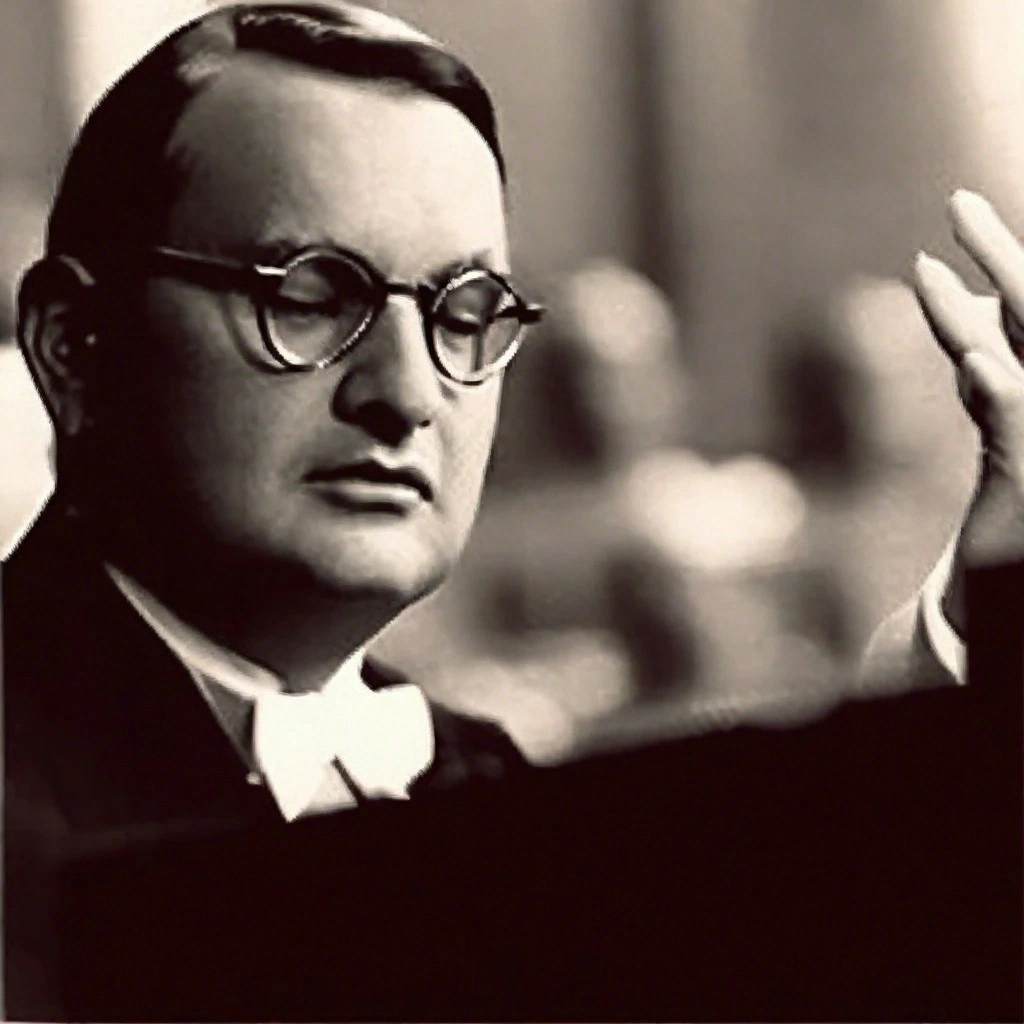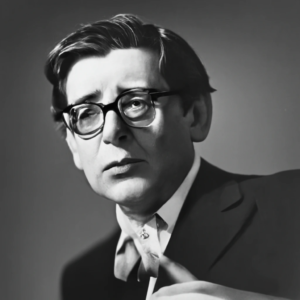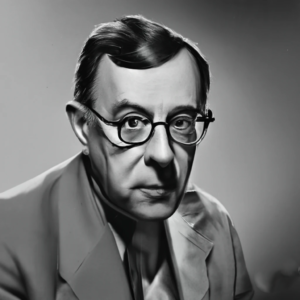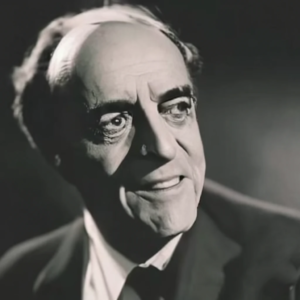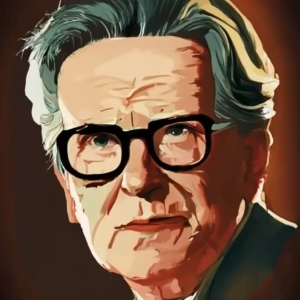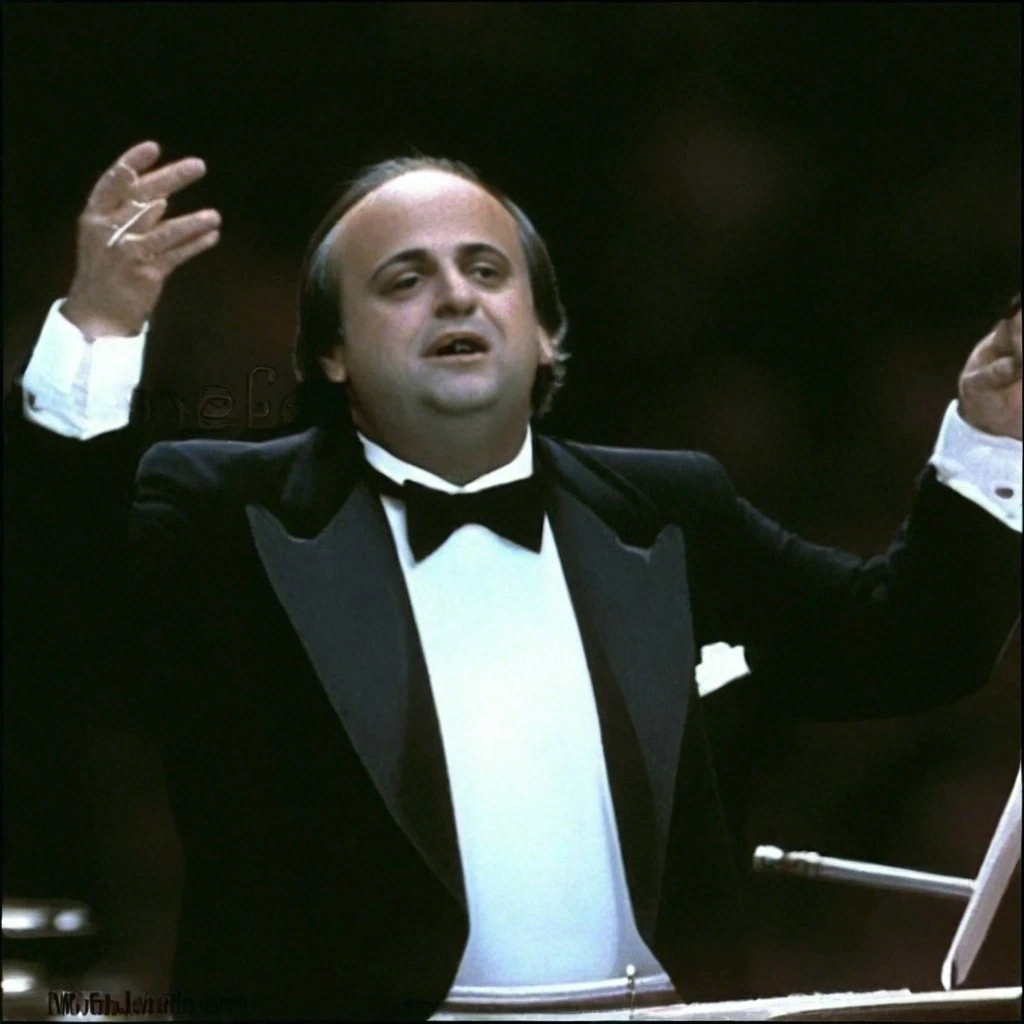Introduction
Max Steiner, a pioneering figure in the world of film music, left an indelible mark on the history of cinema through his revolutionary approach to scoring motion pictures. Born on May 10, 1888, in Vienna, Austria, Steiner exhibited a profound musical talent from a young age. His journey as a composer would lead him to become one of the most influential and celebrated figures in the realm of film composition.
Steiner’s contributions to the art of film music are immeasurable, as he played a pivotal role in shaping the way audiences experience movies. His innovative use of music to enhance storytelling and evoke emotions paved the way for future generations of film composers.
Throughout his illustrious career, Steiner collaborated with some of the most renowned directors of his time, including David O. Selznick, Michael Curtiz, and John Ford, among others. His ability to capture the essence of a film’s narrative through his musical compositions earned him widespread acclaim and numerous accolades.
In this article, we delve into the life and legacy of Max Steiner, exploring his early years, artistic evolution, career milestones, and enduring impact on the world of cinema. Through a comprehensive examination of his life and work, we aim to shed light on the genius behind the music and the profound influence he continues to exert on contemporary film composers.
Early Years and Influences
Max Steiner’s journey into the realm of music began in his formative years, shaped by his upbringing in a musical family and his exposure to the vibrant cultural scene of Vienna, Austria.
Born into a family of musicians on May 10, 1888, Steiner was immersed in music from a young age. His father, Gabor Steiner, was a successful theater impresario, and his mother, Marie, was a talented opera singer. Growing up in this musical environment, Steiner’s passion for music was ignited, and he showed exceptional promise as a musician from an early age.
Steiner received his formal musical education at the Imperial Academy of Music in Vienna, where he studied composition and orchestration under the renowned composer Gustav Mahler. Under Mahler’s tutelage, Steiner honed his skills as a composer and developed a deep appreciation for the art of orchestration, laying the foundation for his future career in film composition.
Vienna, during the late 19th and early 20th centuries, was a hotbed of artistic and intellectual activity, serving as a breeding ground for some of the greatest composers and musicians in history. Steiner’s exposure to the rich cultural heritage of Vienna, with its thriving music scene and avant-garde artistic movements, left an indelible mark on his musical sensibilities.
In addition to his formal education, Steiner was heavily influenced by the operatic works of composers such as Richard Wagner and Giuseppe Verdi, whose grandiose scores and sweeping melodies would later inspire his own compositions for the silver screen. His deep appreciation for the dramatic power of music and its ability to evoke emotions would become a hallmark of his style as a film composer.
Steiner’s early years were characterized by a voracious appetite for music and a relentless pursuit of excellence. His diverse influences, ranging from classical composers to the contemporary music of his time, provided him with a rich tapestry of musical ideas and techniques that he would later draw upon in his film scores.
As Steiner embarked on his career as a composer, his early experiences in Vienna and the profound influence of his musical upbringing would continue to shape his artistic vision, setting him on a path to become one of the most innovative and influential composers in the history of cinema.
Artistic Evolution and Musical Identity
Max Steiner’s artistic evolution and musical identity underwent a remarkable transformation as he transitioned from the concert hall to the world of cinema. His innovative approach to film scoring and his keen understanding of the relationship between music and narrative propelled him to the forefront of the industry, earning him a reputation as one of the most visionary composers of his time.
Steiner’s early forays into film music coincided with the emergence of sound cinema in the late 1920s, presenting him with new opportunities and challenges as a composer. Unlike the silent films of the past, which relied primarily on visual storytelling, sound films opened up a whole new dimension of artistic expression, allowing composers like Steiner to use music to enhance the emotional impact of a film.
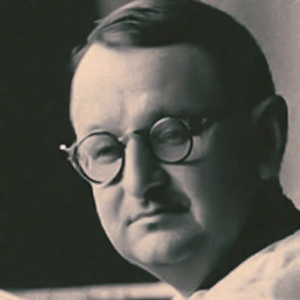 One of Steiner’s earliest successes came with his score for the film “The Big Trail” (1930), directed by Raoul Walsh. In this groundbreaking Western epic, Steiner demonstrated his ability to create music that not only complemented the on-screen action but also added depth and nuance to the characters and storyline. His use of leitmotifs, or recurring musical themes associated with specific characters or ideas, became a defining feature of his style and would later become a staple of film scoring.
One of Steiner’s earliest successes came with his score for the film “The Big Trail” (1930), directed by Raoul Walsh. In this groundbreaking Western epic, Steiner demonstrated his ability to create music that not only complemented the on-screen action but also added depth and nuance to the characters and storyline. His use of leitmotifs, or recurring musical themes associated with specific characters or ideas, became a defining feature of his style and would later become a staple of film scoring.
As Steiner’s career progressed, he continued to refine his approach to film composition, experimenting with new techniques and musical styles to suit the evolving needs of filmmakers. Whether it was crafting lush orchestral scores for epic dramas like “Gone with the Wind” (1939) or creating eerie, atmospheric music for horror films like “King Kong” (1933), Steiner demonstrated a remarkable versatility and adaptability that set him apart from his contemporaries.
Central to Steiner’s musical identity was his innate ability to capture the essence of a film’s narrative through his music. He approached each project with a deep understanding of the characters, themes, and emotions at play, using music as a powerful storytelling tool to elicit a range of emotions from the audience. Whether conveying love, loss, triumph, or tragedy, Steiner’s music had a profound emotional resonance that elevated the cinematic experience to new heights.
In addition to his technical prowess as a composer, Steiner possessed an unparalleled gift for melody and orchestration. His scores were characterized by sweeping melodies, lush harmonies, and richly textured orchestrations that brought the worlds of his films to life in vivid detail. From the soaring strings of “Casablanca” (1942) to the hauntingly beautiful piano motifs of “Now, Voyager” (1942), Steiner’s music left an indelible imprint on the collective consciousness of audiences around the world.
Steiner’s artistic evolution and musical identity were shaped by a lifelong commitment to pushing the boundaries of his craft and exploring new artistic horizons. His pioneering spirit, coupled with his innate musical talent and boundless creativity, ensured that his legacy would endure for generations to come, inspiring countless composers to follow in his footsteps and continue the tradition of excellence he established in the world of film music.
Career Milestones and Achievements
Max Steiner’s illustrious career as a film composer was punctuated by numerous milestones and achievements that solidified his legacy as one of the most influential figures in the history of cinema. From his groundbreaking work on iconic films to his numerous accolades and awards, Steiner’s contributions to the art of film music are nothing short of extraordinary.
One of Steiner’s earliest and most significant achievements came with his score for “King Kong” (1933), directed by Merian C. Cooper and Ernest B. Schoedsack. The film, a groundbreaking achievement in the realm of special effects and visual storytelling, required a score that could match its epic scale and dramatic intensity. Steiner rose to the challenge, creating a score that perfectly captured the awe and terror of the giant ape’s rampage through New York City. His use of innovative orchestration techniques, including the incorporation of exotic percussion instruments and dissonant harmonies, helped to elevate the film to new heights and set a new standard for film music in the process.
Another career milestone for Steiner came with his collaboration with director David O. Selznick on “Gone with the Wind” (1939), widely regarded as one of the greatest films ever made. Steiner’s sweeping orchestral score, which incorporated elements of Southern folk music and traditional orchestral themes, played a crucial role in bringing the epic saga of the American Civil War to life on the screen. The film’s iconic main theme, “Tara’s Theme,” became synonymous with the grandeur and romance of the Old South and remains one of the most recognizable pieces of film music in history.
Throughout his career, Steiner continued to push the boundaries of film music, exploring new genres and styles to suit the diverse range of films he worked on. From the swashbuckling adventures of “The Adventures of Robin Hood” (1938) to the atmospheric horror of “The Treasure of the Sierra Madre” (1948), Steiner demonstrated a remarkable versatility and adaptability as a composer, earning him widespread acclaim and admiration from his peers and audiences alike.
In recognition of his contributions to the art of film music, Steiner received numerous accolades and awards throughout his career, including three Academy Awards for Best Original Score. His impact on the world of cinema was further cemented by his induction into the Hollywood Walk of Fame and the Songwriters Hall of Fame, ensuring that his legacy would endure for generations to come.
In summary, Max Steiner’s career was defined by a series of remarkable milestones and achievements that showcased his extraordinary talent and lasting impact on the world of cinema. From his groundbreaking scores for iconic films to his numerous awards and accolades, Steiner’s contributions to the art of film music continue to resonate with audiences around the world, cementing his status as one of the most revered and influential composers in history.
Social and Cultural Impact
Max Steiner’s contributions to the world of film music transcended the confines of the silver screen, exerting a profound social and cultural impact that resonated far beyond the walls of the movie theater. Through his innovative compositions and pioneering approach to scoring motion pictures, Steiner not only shaped the way audiences experienced films but also helped to redefine the role of music in society at large.
One of the most significant aspects of Steiner’s social and cultural impact was his ability to bridge the gap between high art and popular entertainment. At a time when film music was still considered a relatively nascent and disposable form of artistic expression, Steiner elevated the medium to new heights of artistic legitimacy, demonstrating the power of music to engage, inspire, and provoke thought.
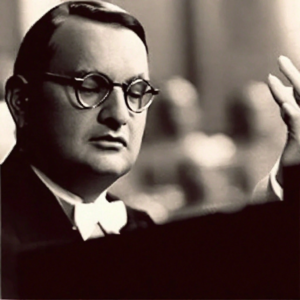 Steiner’s scores were more than mere background music; they were integral components of the cinematic experience, enhancing the emotional impact of the visuals and enriching the storytelling process. Whether conveying the grandeur of a sweeping epic or the intimacy of a heartfelt romance, Steiner’s music had the power to transport audiences to new worlds and evoke a wide range of emotions.
Steiner’s scores were more than mere background music; they were integral components of the cinematic experience, enhancing the emotional impact of the visuals and enriching the storytelling process. Whether conveying the grandeur of a sweeping epic or the intimacy of a heartfelt romance, Steiner’s music had the power to transport audiences to new worlds and evoke a wide range of emotions.
Moreover, Steiner’s pioneering use of leitmotifs, or recurring musical themes associated with specific characters, ideas, or emotions, revolutionized the way filmmakers approached storytelling. By assigning distinct musical motifs to different elements of the narrative, Steiner was able to create a sense of cohesion and continuity throughout a film, helping audiences to connect more deeply with the characters and themes on screen.
In addition to his artistic innovations, Steiner’s music also played a significant role in shaping the cultural landscape of his time. His scores for films like “Gone with the Wind” (1939) and “Casablanca” (1942) became cultural touchstones, beloved by audiences around the world and indelibly linked to the collective memory of their respective eras. The themes and melodies he created transcended the boundaries of the cinema, permeating popular culture and becoming part of the fabric of everyday life.
Furthermore, Steiner’s influence extended beyond the realm of film into other areas of the arts and entertainment industry. His innovative use of orchestration techniques and his ability to blend disparate musical styles paved the way for future generations of composers, inspiring them to push the boundaries of their craft and explore new artistic horizons.
In summary, Max Steiner’s social and cultural impact was far-reaching and multifaceted, encompassing both his groundbreaking contributions to the art of film music and his broader influence on society as a whole. Through his pioneering compositions, Steiner not only enriched the cinematic experience but also helped to shape the cultural landscape of his time, leaving behind a lasting legacy that continues to inspire and resonate with audiences around the world.
Personal Life: Behind the Scenes
Beyond his prolific career as a film composer, Max Steiner led a rich and complex personal life that contributed to the depth of his musical compositions and artistic vision. While Steiner’s professional endeavors often took center stage, his personal experiences and relationships played a crucial role in shaping his identity as a composer and shaping the trajectory of his life.
Steiner’s early years in Vienna were marked by a deep connection to his family and a vibrant cultural milieu that fostered his love of music. Growing up in a household filled with the sounds of opera and theater, he developed a lifelong passion for music that would shape his career and define his artistic sensibilities.
However, Steiner’s personal life was not without its challenges. His family’s fortunes fluctuated over the years, leading to periods of financial instability and uncertainty. Despite these hardships, Steiner remained steadfast in his pursuit of his musical dreams, drawing inspiration from his experiences and using them to fuel his creativity.
In 1909, Steiner made the bold decision to leave his native Vienna and embark on a new chapter in his life in the United States. Arriving in New York City, he quickly established himself as a talented composer and conductor, finding success in the burgeoning world of Broadway theater.
Throughout his life, Steiner maintained a deep love of family and a strong sense of loyalty to his roots. Despite his international acclaim and busy schedule, he remained closely connected to his Austrian heritage, frequently returning to Vienna to visit family and friends.
Steiner’s personal life was also marked by a series of significant relationships, both romantic and platonic, that left a lasting impact on his music and artistic development. His marriages, friendships, and collaborations with fellow artists provided him with a source of inspiration and support, helping to shape his creative vision and enrich his musical compositions.
In his later years, Steiner faced health challenges that limited his ability to work, but his passion for music remained undiminished. Even as he battled illness, he continued to compose and conduct, leaving behind a legacy of extraordinary music that continues to inspire and captivate audiences to this day.
In conclusion, Max Steiner’s personal life was a complex tapestry of triumphs and challenges, joys and sorrows, all of which contributed to the depth and richness of his musical compositions. His experiences, relationships, and personal struggles informed his artistry and shaped the trajectory of his career, leaving behind a legacy that extends far beyond the realm of film music.
Discography and Creative Works
Max Steiner’s discography and creative works encompass a vast array of compositions spanning across film, theater, and other artistic mediums. Throughout his prolific career, Steiner crafted an extensive body of work that showcased his unparalleled talent for storytelling through music and his ability to capture the essence of a film’s narrative in his scores.
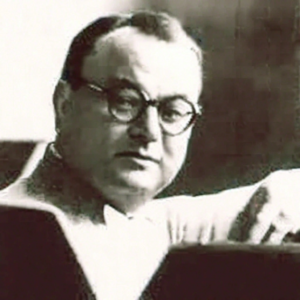 Steiner’s contributions to the world of film music are perhaps his most enduring legacy, with his scores for iconic films leaving an indelible mark on the history of cinema. Some of his most notable works include:
Steiner’s contributions to the world of film music are perhaps his most enduring legacy, with his scores for iconic films leaving an indelible mark on the history of cinema. Some of his most notable works include:
1. “King Kong” (1933) – Steiner’s score for this classic monster movie is widely regarded as one of his greatest achievements. With its evocative themes and innovative orchestration, the music perfectly captures the awe and terror of the giant ape’s rampage through New York City.
2. “Gone with the Wind” (1939) – Steiner’s sweeping orchestral score for this epic Civil War drama remains one of the most beloved and iconic film scores of all time. The film’s main theme, “Tara’s Theme,” has become synonymous with the grandeur and romance of the Old South.
3. “Casablanca” (1942) – Steiner’s score for this classic romantic drama is another highlight of his career, featuring memorable melodies and lush orchestration that complement the film’s timeless story of love and sacrifice.
4. “The Adventures of Robin Hood” (1938) – Steiner’s rousing score for this swashbuckling adventure film perfectly captures the spirit of medieval England, with its lively melodies and dynamic orchestration.
5. “Now, Voyager” (1942) – Steiner’s hauntingly beautiful score for this romantic drama showcases his talent for crafting intimate and emotionally resonant music. The film’s main theme, performed on piano, has become one of Steiner’s most beloved compositions.
In addition to his work in film, Steiner also composed music for numerous stage productions, radio programs, and television shows throughout his career. His versatility as a composer allowed him to excel in a variety of genres and styles, from lush orchestral scores to intimate chamber music and everything in between.
Steiner’s creative output was characterized by his innovative use of musical techniques and his ability to tailor his compositions to suit the unique needs of each project. Whether scoring a grand epic or an intimate character drama, Steiner approached each assignment with the same level of dedication and artistry, resulting in a body of work that continues to captivate and inspire audiences to this day.
In summary, Max Steiner’s discography and creative works represent a testament to his extraordinary talent and lasting impact on the world of music and cinema. From his iconic film scores to his lesser-known works in other mediums, Steiner’s compositions continue to stand the test of time, earning him a place among the greatest composers in history.
Fan Engagement and Community Building
Max Steiner’s legacy extends far beyond his contributions to film music; it encompasses a devoted community of fans and admirers who continue to celebrate his life and work to this day. Through various forms of fan engagement and community building efforts, Steiner’s influence has endured, connecting generations of music lovers and film enthusiasts around the world.
One of the most significant avenues for fan engagement in Steiner’s legacy is through the preservation and promotion of his music. Fan clubs, online forums, and social media groups dedicated to Steiner’s work provide a platform for fans to connect, share their passion for his music, and discuss their favorite scores and compositions. These communities serve as a gathering place for like-minded individuals who appreciate Steiner’s artistry and wish to keep his memory alive.
In addition to informal fan communities, there are also organized efforts to preserve and archive Steiner’s music for future generations. Initiatives such as the Max Steiner Collection at Brigham Young University’s Harold B. Lee Library and the Max Steiner Film Music Achievement Award, presented annually by the City of Vienna, help to ensure that Steiner’s music remains accessible and appreciated for years to come.
Fan engagement with Steiner’s music extends beyond mere appreciation; it often involves active participation in events and activities that celebrate his legacy. Concerts, film screenings, and tribute performances dedicated to Steiner’s music provide fans with opportunities to experience his compositions live and in person, fostering a sense of connection and community among attendees.
Furthermore, fan engagement efforts often extend to educational initiatives aimed at introducing new generations of music lovers to Steiner’s work. School programs, workshops, and lectures on film music history frequently include discussions of Steiner’s contributions, helping to ensure that his legacy continues to inspire future composers and filmmakers.
Steiner’s impact on fan engagement and community building is not limited to formal channels; his music has also inspired countless individuals to create their own fan art, covers, remixes, and other creative works inspired by his compositions. These fan-made creations serve as a testament to the enduring influence of Steiner’s music and the deep connection it fosters among fans across the globe.
In summary, Max Steiner’s fan engagement and community building efforts have helped to cultivate a vibrant and dedicated fan base that continues to celebrate his life and work long after his passing. Through fan clubs, online communities, live events, educational initiatives, and creative projects, fans around the world come together to honor Steiner’s legacy and ensure that his music remains an integral part of our cultural heritage for generations to come.
Enduring Legacy and Historical Significance
Max Steiner’s enduring legacy and historical significance lie not only in his groundbreaking contributions to the art of film music but also in the lasting impact he has had on the broader cultural landscape. As one of the pioneers of film scoring, Steiner helped to establish the role of music as an integral component of cinematic storytelling, revolutionizing the way audiences experience movies and shaping the course of film history.
 One of the most significant aspects of Steiner’s legacy is his role in elevating the status of film music from mere background accompaniment to a vital and essential element of the filmmaking process. Prior to Steiner’s pioneering work, film scores were often improvised or cobbled together from existing pieces of music, with little consideration given to their dramatic or emotional impact. Steiner’s innovative approach to scoring, which emphasized thematic consistency, narrative coherence, and emotional resonance, set a new standard for film composers and established the foundation for modern film music.
One of the most significant aspects of Steiner’s legacy is his role in elevating the status of film music from mere background accompaniment to a vital and essential element of the filmmaking process. Prior to Steiner’s pioneering work, film scores were often improvised or cobbled together from existing pieces of music, with little consideration given to their dramatic or emotional impact. Steiner’s innovative approach to scoring, which emphasized thematic consistency, narrative coherence, and emotional resonance, set a new standard for film composers and established the foundation for modern film music.
Moreover, Steiner’s use of leitmotifs, or recurring musical themes associated with specific characters, ideas, or emotions, revolutionized the way filmmakers approached storytelling and laid the groundwork for future generations of composers. By assigning distinct musical motifs to different elements of the narrative, Steiner was able to create a sense of cohesion and continuity throughout a film, helping audiences to connect more deeply with the characters and themes on screen.
Steiner’s impact on the world of cinema can be seen in the countless composers who have been inspired by his work and the countless films that have been enhanced by his music. His influence extends across genres and generations, shaping the way filmmakers and composers approach the craft of film scoring to this day.
In addition to his artistic contributions, Steiner’s historical significance lies in his role as a cultural ambassador, bridging the gap between the worlds of high art and popular entertainment. Through his music, Steiner brought classical music to the masses, introducing audiences around the world to the beauty and power of orchestral music and inspiring a new appreciation for the art form.
Furthermore, Steiner’s legacy extends beyond the realm of film music into other areas of the arts and entertainment industry. His innovative use of orchestration techniques and his ability to blend disparate musical styles influenced a wide range of composers and musicians, leaving an indelible mark on the development of music in the 20th century and beyond.
In summary, Max Steiner’s enduring legacy and historical significance stem from his pioneering contributions to the art of film music and his lasting impact on the broader cultural landscape. Through his innovative compositions, groundbreaking techniques, and tireless dedication to his craft, Steiner helped to shape the course of film history and establish himself as one of the most influential composers of the 20th century. His music continues to inspire and captivate audiences around the world, ensuring that his legacy will endure for generations to come.
Conclusion and Reflections
In conclusion, the life and legacy of Max Steiner stand as a testament to the transformative power of music in the world of cinema and beyond. As a pioneering figure in the realm of film composition, Steiner revolutionized the way audiences experience movies, elevating the role of music from mere background accompaniment to an essential element of cinematic storytelling. Through his innovative use of leitmotifs, thematic consistency, and emotional resonance, Steiner crafted scores that not only enhanced the narrative of the films they accompanied but also left a lasting imprint on the cultural landscape.
From his early successes with films like “King Kong” and “Gone with the Wind” to his enduring influence on future generations of composers, Steiner’s impact on the world of cinema cannot be overstated. His ability to capture the essence of a film’s narrative through his music, combined with his relentless pursuit of excellence and innovation, ensured that his legacy would endure for generations to come.
Beyond his professional achievements, Steiner’s personal life and experiences added depth and richness to his music, providing a source of inspiration and creative fuel. His deep connection to his family, his love of his Austrian heritage, and his enduring passion for music all contributed to the depth and emotional resonance of his compositions, further cementing his status as one of the greatest composers of the 20th century.
As we reflect on the life and work of Max Steiner, we are reminded of the transformative power of music to touch hearts, evoke emotions, and transcend the boundaries of time and space. His legacy serves as a beacon of inspiration for composers, filmmakers, and music lovers around the world, reminding us of the profound impact that art can have on our lives and the enduring power of creativity to shape our shared humanity.
In the words of Max Steiner himself, “Music is a language that doesn’t speak in particular words. It speaks in emotions, and if it’s in the bones, it’s in the bones.” Indeed, Steiner’s music continues to speak to us, resonating deep within our souls and reminding us of the boundless possibilities of the human spirit. As we celebrate his life and legacy, we are reminded of the timeless beauty and enduring significance of his music, ensuring that his memory will live on for generations to come.
